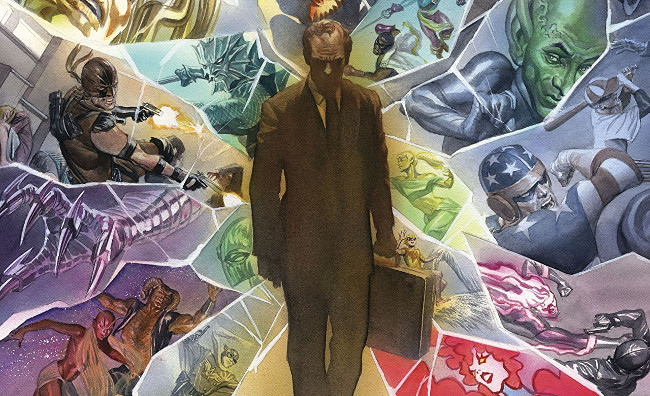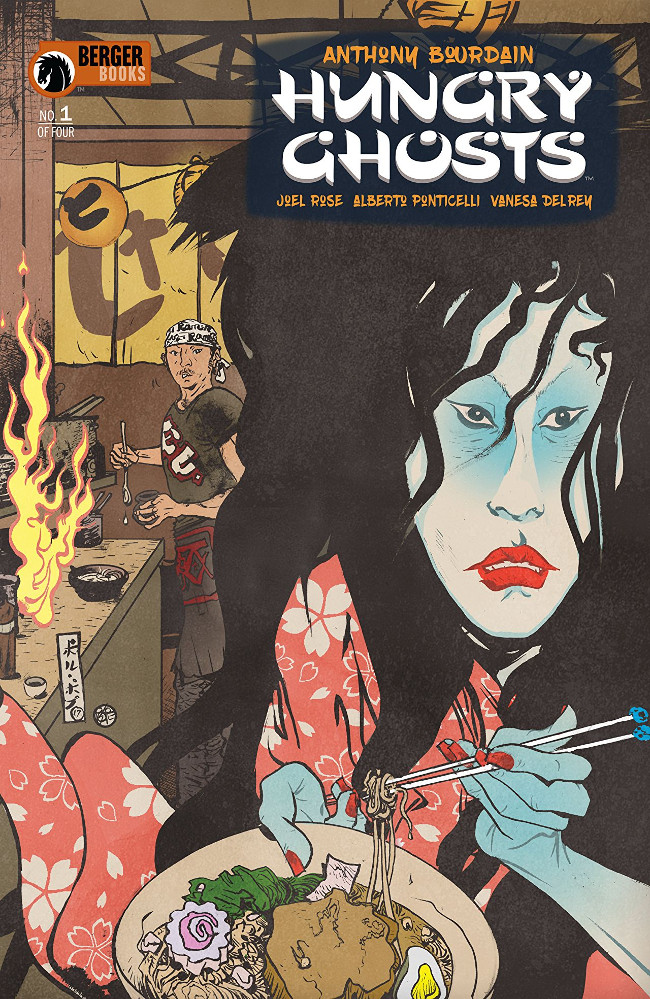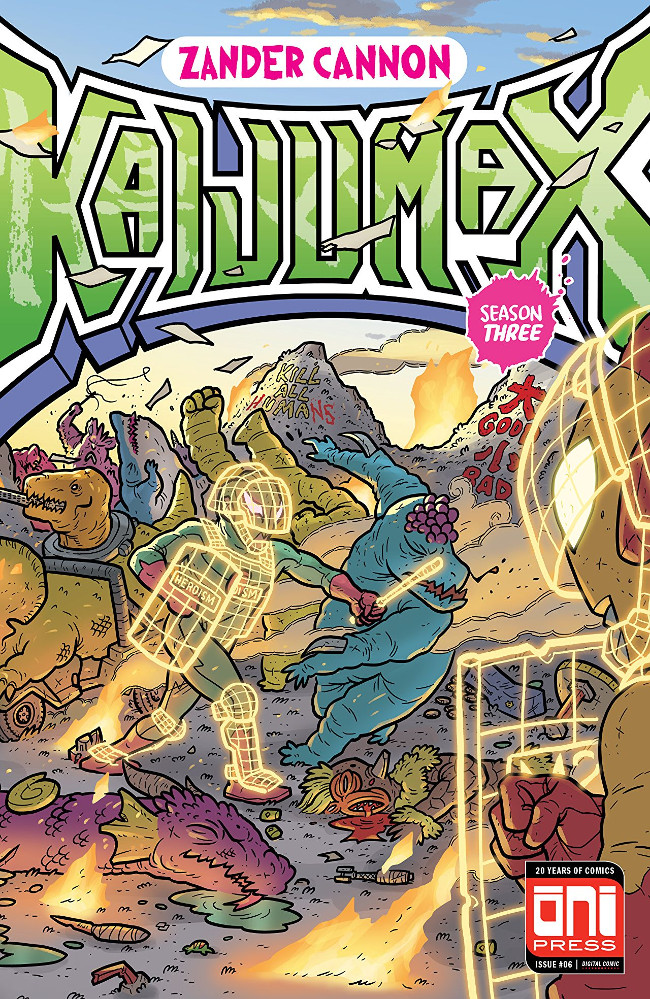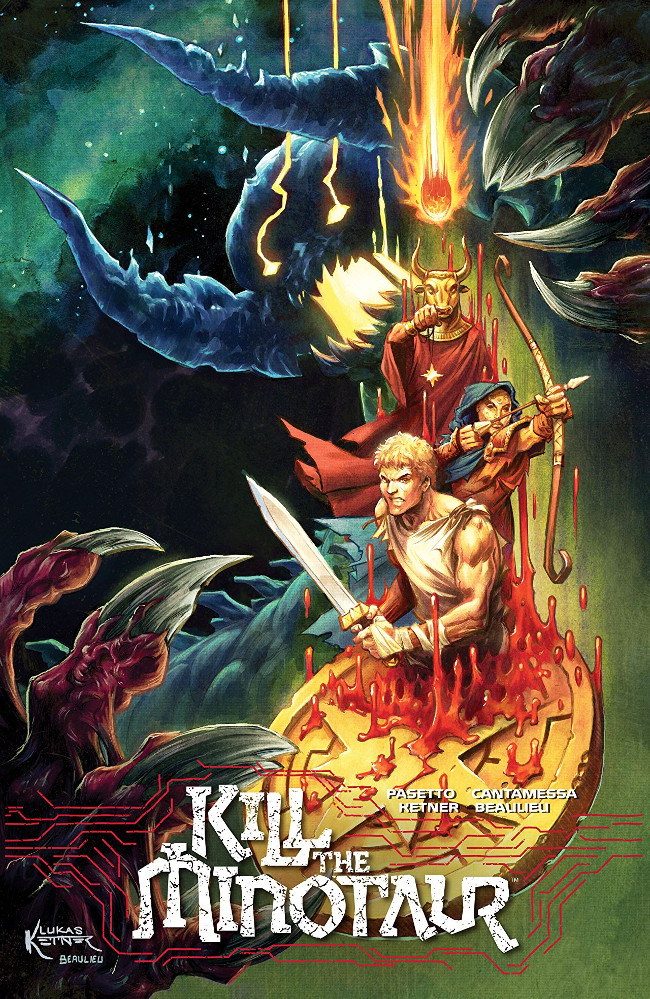
Astro City has been one of the most enduring superhero comics in part because it focuses on the human side of the story, whether it’s superheroes yearning for something else in life, or the little guy who comes home to a pile of rubble. And, for the 50th issue of its latest run, it doesn’t expand, but shrinks, down to one man, Michael Tencik, and how he helps the people of Astro City deal with the fallout when tragedy strikes.
Tencik, fans of the series might remember, was the star of one of the first stories, where he lost the love of his life in a massive world-shattering crossover. Except, because of the nature of superhero crossovers, the woman he loved never existed, and yet he remembers her anyway. It’s a heartbreaking story, but Tencik has made the best of it since: He runs a support group for people who survived supervillainous encounters, or lost somebody in the crossfire. The subtle irony is that he helps other people get through, but he’s not getting through himself: He lives a grey, spare life of donuts, grief, Chinese food, and painting the portrait of a woman who doesn’t quite exist. But if you know anything about comic books, you know everybody comes back, sooner or later.
Kurt Busiek, who writes, and Brent Anderson, who handles pencils and inks with Pete Pantazis on colors, have been doing this book together for so long it simply flows. The smallness of the story’s scale shows just how skilled Anderson, in particular, is. He’s done vast panoramas of gods punching each other for years, but here we see how carefully he can render somebody you might work with or run into on the street. It’s rare that a comic book is this touching, or a twist at the end of one is this wrenching, and it reaffirms that Astro City isn’t just one of the best superhero books, but one of the best comics.

Hungry Ghosts #1, Dark Horse
Anthony Bourdain — yes, the angry chef guy — has returned to comics with a horror anthology tied to food, with Alberto Ponticelli and Vanesa Del Rey handling the artwork. The Japanese theme is an odd choice for a book that feels much more like EC Comics than a discussion of mythology, and there are moments where it feels more like trappings than central to the book’s identity. But the ghost stories themselves are well-chosen, the food theme is cleverly used, and the art is unimpeachable, especially Del Ray’s work. She’s a masterful horror artist who gets to stretch a bit beyond her usual zone here.
Defenders #9, Marvel
Brian Michael Bendis and David Marquez wrap up their penultimate issue by bringing in, well, pretty much every street-level hero tied to the core four heroes. This book has always been intended as a love letter to Marvel’s gritty street-level superheroes, even if it’s clearly tied into the Netflix series, but it stands on its own a bit in part simply because everyone involved clearly enjoys the punching and smart-ass remarks as much as the noir themes and serious drama. Sometimes you don’t want to think about the moral consequences of superheroes, and you just want to see Luke Cage take out a jerk by throwing a car at him, and this book nails that.
Lazaretto #5, BOOM! Studios
Clay McLeod Chapman and Jay Levang wrap up their cross between Outbreak and Lord of The Flies with a finale that’s both scary as hell and oddly, grimly optimistic in the end. The real story has been how a shy, terrified girl and an uncertain, closeted boy form a powerful friendship in the face of some terrifying circumstances. And, as the story wraps up, we learn that friendship wasn’t just a child of circumstance. They may never see each other again, but they’ll always remember each other.
Quantum and Woody #2, Valiant
Daniel Kibblesmith and Kano find the one thing that can actually divide the world’s worst superhero team: the true biological father of Woody, the con-man adopted brother of Eric. We’ve seen superhero fights before, of course, but Kibblesmith and Kano are fully aware of the cliches and tropes and zig zag them even as they freight this story with a little meaning. Woody has never quite felt like he belonged, and underneath the gags, there’s some real pain that gives this book a bit more weight.

Kaijumax Season Three #6, Oni Press: The pressure cooker Xander Cannon has slowly been building explodes in this issue, which shows just what happens when fire-breathing monsters have had enough.
Star Wars: DJ: Most Wanted #1, Marvel: Ben Acker, Ben Blacker and Kev Walker fill in just how DJ the thief wound up in jail on Canto Bight in an issue explaining just how the thief and hacker lives day to day.
Bonehead #2, Top Cow/Image Comics: Bryan Edward Hill and Rhoald Marcellius offer up a fun cyberpunk throwback with plenty of action and not a little affection for the tropes of the genre.
JLA/Doom Patrol: Milk Wars #1, DC Comics: Gerard Way, Steve Orlando, and Aco cross over Way’s absurdly meta superhero team with Orlando’s slightly more traditional take for a deliberately bizarre, and more than a little disturbing, throwback to the days of metastories in comics.
The Silencer #1, DC Comics: Dan Abnett and John Romita Jr. tell a story we’ve read before, about a hitwoman who got out of the life and is pulled back into it, but they tell it with so much panache you’ll keep reading.
This Week’s Best Collections

Kill The Minotaur, Image Comics ($20, Softcover): Chris Pasetto and Lukas Ketner retell the story of the minotaur, taking it out of myth to make it the horror story it truly is.
Godshaper, BOOM! Studios ($20, Softcover): Si Spurrier and Jonas Goonface offer a thoughtful take on religious belief, social progress, and punk music in one of 2017’s more unusual comics.
Mystery Men: The Golden Age, Marvel ($20, Softcover): David Liss and Patrick Zircher take on the Golden Age in a fascinating explanation of why so many real-world historical events happened in Marvel’s continuity.
